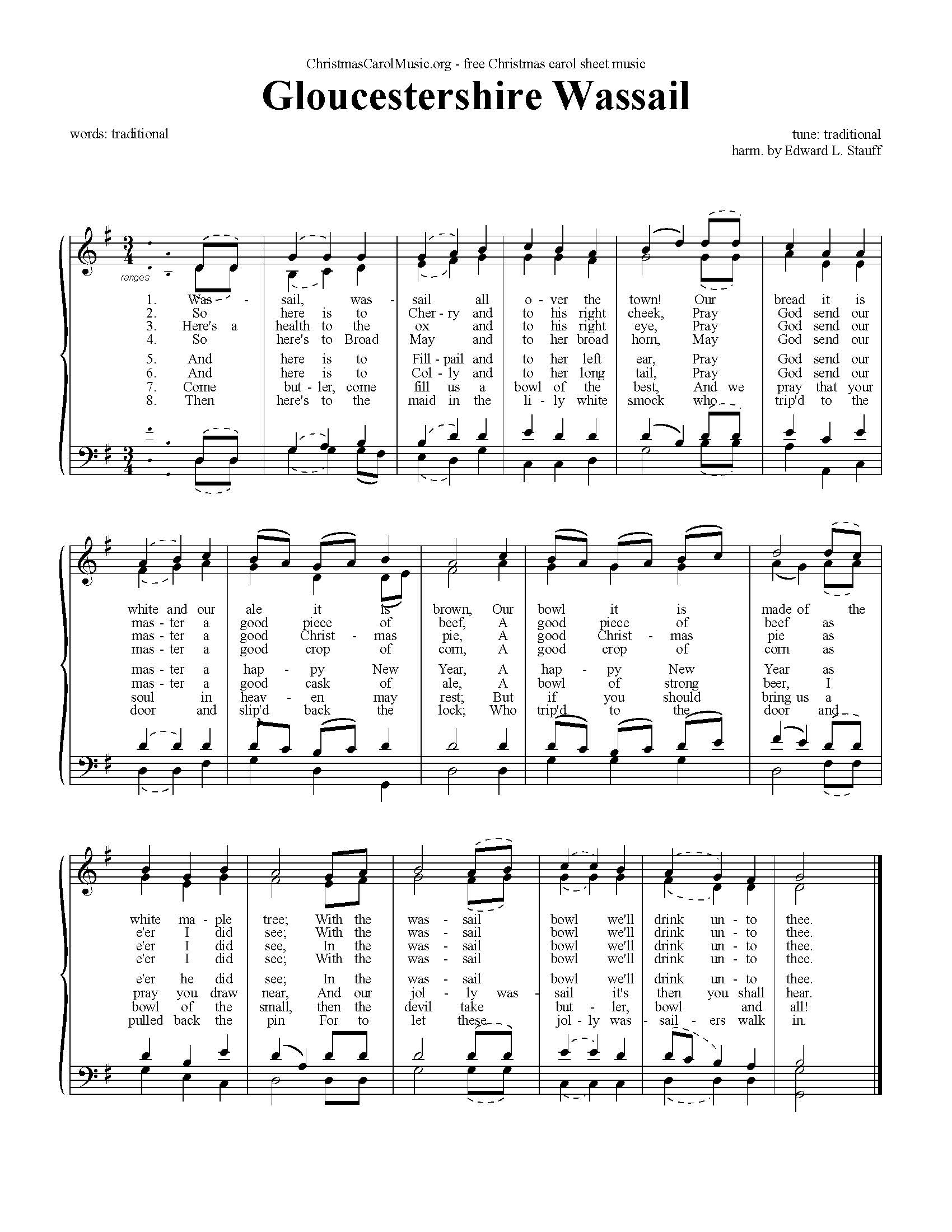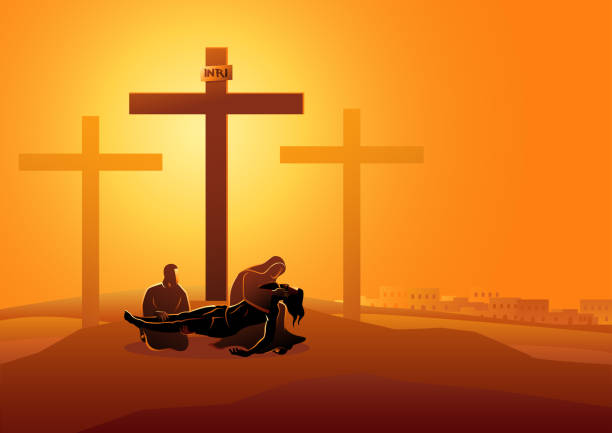Gloucestershire Wassail
By Ralph Vaughan Williams
Lyrics
1 Wassail! wassail! all over the town,
Our toast it is white and our ale it is brown;
Our bowl it is made of the white maple tree;
With the wassailing bowl, we'll drink to thee.
2 Here's to our horse, and to his right ear,
God send our master a happy new year:
A happy new year as e'er he did see,
With my wassailing bowl I drink to thee.
3 So here is to Cherry and to his right cheek
Pray God send our master a good piece of beef
And a good piece of beef that may we all see
With the wassailing bowl, we'll drink to thee.
4 Here's to our mare, and to her right eye,
God send our mistress a good Christmas pie;
A good Christmas pie as e'er I did see,
With my wassailing bowl I drink to thee.[b]
5 So here is to Broad Mary and to her broad horn
May God send our master a good crop of corn
And a good crop of corn that may we all see
With the wassailing bowl, we'll drink to thee.
6 And here is to Fillpail and to her left ear
Pray God send our master a happy New Year
And a happy New Year as e'er he did see
With the wassailing bowl, we'll drink to thee.
7 Here's to our cow, and to her long tail,
God send our master us never may fail
Of a cup of good beer: I pray you draw near,
And our jolly wassail it's then you shall hear.
8 Come butler, come fill us a bowl of the best
Then we hope that your soul in heaven may rest
But if you do draw us a bowl of the small
Then down shall go butler, bowl and all.
9 Be here any maids? I suppose here be some;
Sure they will not let young men stand on the cold stone!
Sing hey O, maids! come trole back the pin,
And the fairest maid in the house let us all in.
10 Then here's to the maid in the lily white smock
Who tripped to the door and slipped back the lock
Who tripped to the door and pulled back the pin
For to let these jolly wassailers in.
Bible Reference
Luke 2:14
About This Hymn
The “Gloucestershire Wassail” is a traditional English folk carol originating from the county of Gloucestershire, where wassailing customs were long practiced as part of Christmas and New Year festivities. The term “wassail” comes from the Old English toast “waes hael,” meaning “be in good health.” Traditionally, groups of singers would go from house to house offering songs and good wishes in exchange for food, drink, or gifts. The Gloucestershire version is among the best-known wassailing songs, celebrating cheer, prosperity, and communal goodwill.
Ralph Vaughan Williams, the English composer and folk song collector, preserved this carol when he arranged and published it in 1913 in his collection Eight Traditional English Carols. His work helped bring many regional English folk traditions into mainstream choral repertoire, ensuring their survival and continued use in both sacred and seasonal celebrations. Through his arrangement, the Gloucestershire Wassail became widely sung in choirs, concerts, and seasonal gatherings, linking English folk culture with the broader Christmas carol tradition.
Although secular in nature, the carol captures the festive spirit that often accompanies the Christmas season. With its rustic rhythm and joyful chorus, it reflects the merriment of wassailers bringing glad tidings to their neighbors. Today, it remains popular in folk and classical renditions, often performed in Christmas concerts as a lively example of English cultural heritage.


📬 Subscribe to Our Devotional Updates
Receive weekly hymns, devotionals, and website features directly in your inbox.
Hymn Information

- Category: Hymn
- Author/Writer: Ralph Vaughan Williams (1913)
- Added: September 8, 2025
- Last Updated: September 8, 2025
- Views: 200
MIDI File
Hymns from 1913
Recent Blog Posts
-

-
 7 Signs of the End Times According to the Bible
7 Signs of the End Times According to the Bible
Oct 16, 2025 -
 Building a Godly Marriage: 10 Biblical Principles
Building a Godly Marriage: 10 Biblical Principles
Oct 16, 2025 -
 How to Hear God’s Voice Through Scripture
How to Hear God’s Voice Through Scripture
Oct 16, 2025 -
 How You Can Overcoming Anxiety with God’s Word
How You Can Overcoming Anxiety with God’s Word
Oct 16, 2025
Visit Us on Social Media
Latest from X (Twitter)
Tweets by HymnalLibraryLatest from Facebook
Latest on YouTube
Daily Bible Verse
Disclaimer
The hymns, sheet music, MIDI files, and related content on this website are provided for educational and research purposes only.
- Public Domain: Many of the hymns featured here are in the public domain and may be freely used.
- Copyrighted Works: Some hymns may still be under copyright protection. Where applicable, permission has either been requested from the copyright owner, or the content is shared under the principles of fair use for educational purposes.
⚠️ Important Notice: If you wish to reproduce, distribute, or use any copyrighted hymn beyond personal study or educational use, you must obtain permission directly from the copyright holder. This website does not grant any rights for commercial use yet.
If there is any other question please address it to us in our Contact Page, for further assistance. Thank you for using the site. May God Bless You.